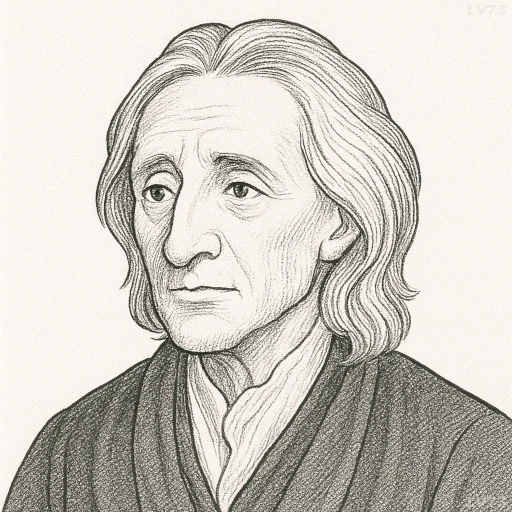“The dread of evil is a much more forcible principle of human actions than the prospect of good.”

- August 29, 1632 – October 28, 1704
- Born in England (UK)
- Philosopher and political thinker
table of contents
Quote
“The dread of evil is a much more forcible principle of human actions than the prospect of good.”
Explanation
In this quote, John Locke suggests that fear of harm or evil often has a stronger influence on human behavior than the desire for reward or good outcomes. He argues that people are more motivated by the need to avoid suffering or misfortune than by the potential for achieving positive goals. This idea reflects a fundamental aspect of human psychology: people are often driven by negative emotions, such as fear, anxiety, and pain, which can overpower their pursuit of pleasure, happiness, or success. Locke’s assertion emphasizes how deeply the avoidance of harm can shape actions, even when the prospect of good is equally attainable.
Locke’s insight about human nature fits within his broader philosophy of empiricism and rationality. In his view, human actions are often governed by experience and the desire to protect oneself from harm. In the 17th century, this understanding was part of a larger philosophical movement that explored human psychology and motivation. Locke saw fear as an instinctive response that could often outweigh rational thought or the pursuit of long-term benefits. This made it a powerful force in shaping behavior, sometimes leading people to make decisions that prioritize safety or security over growth or potential rewards.
In modern times, Locke’s observation remains relevant in understanding human decision-making and psychological behavior. The impact of fear can be seen in many areas of life, from consumer behavior to political decisions. For example, advertising often capitalizes on the fear of missing out or the fear of negative consequences (e.g., health risks or financial loss), which can be a more compelling motivator than the promise of positive outcomes. Additionally, in public policy or global issues like climate change, people may be more motivated to act when they fear the consequences of inaction (e.g., natural disasters, economic collapse) than when they are presented with the potential benefits of taking action. Locke’s insight reminds us that negative emotions, such as fear and dread, often have a stronger hold on our behavior than the more abstract or distant promise of good.
Would you like to share your impressions or related stories about this quote in the comments section?


